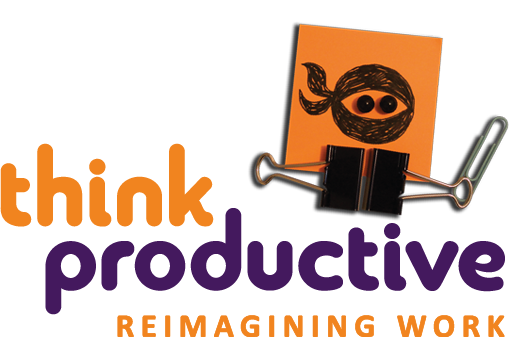As a Productivity Ninja, I relish the opportunity to run Public Workshops – available to all and fabulously good value. Every month or so, Think Productive UK opens its doors to the productively-challenged. We share best practice, challenge embedded thinking and change lives.
I ran a sold-out Public Workshop on October 5th in London. As always, one of the most revelatory parts of the day was covering Context.
Context is king; we are so used to working in Projects that shifting to “Think in Projects; Work in Context” was – as usual – an Aha! moment for the attendees.
When I had explained that the default Contexts should be: @phone, @pc, @errand and @home, a lady asked what we should do if the Next Action was to think about something, rather than do something. Good question – and one that we frequently neglect. I answered that, in that case, the Next Action should be captured in the “@thinking” context.
She seemed happy with this. A few minutes later, I noticed that this lady was putting almost all of her Next Actions into the @thinking Context. Then the penny dropped. Her Next Action wasn’t to think about these things; it was something else, but she was avoiding deciding what that Next Action was, and was using the @thinking Context as a substitute for making any decisions at all about what was required to move a Project forward.
This doesn’t work.
If we fail to do the hard thinking about our Projects up front – and decide what the Next Action is – we will spend our lives in a loop of procrastination, and nothing will happen in any of our Contexts.
Like this? Try these
Feeling disorganised? Try one of our time management training courses
To-Do Today – limit your internet access thinkproductive.co.uk
Advanced Pomodoro Technique – stop procrastinating thinkproductive.co.uk
Why We Procrastinate, and How to Stop It – Lifehacker
